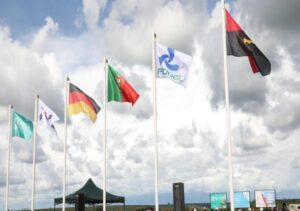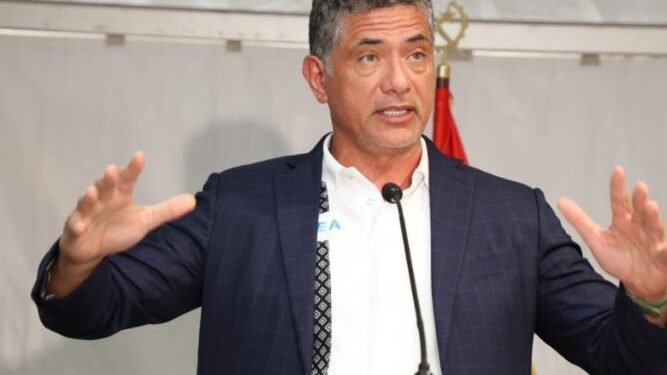Electrification will extend to more than a million people residing in 60 communes spread across Malanje, Bié, Moxico, Lunda-Norte, and Lunda-Sul provinces. The inauguration ceremony for the Rural Electrification Project of Lunda-Norte Province occurred in Cafunfo, Cuango Municipality, on November 15th. The event was chaired by the Minister of Energy and Water, João Baptista Borges, in the presence of Provincial Governor Deolinda Vilarinho, and ambassadors from Portugal, Francisco Alegre, and Germany, Stefan Traumann, alongside officials from the energy sector, DNEER, PRODEL, ENDE.
The document signing was conducted by company representatives. PRODEL, acting on behalf of the Angolan government, will supervise the project, with the Portuguese group MCA as the primary contractor. During the event, the minister underscored the project’s significance in the country’s electrification progress, echoing President João Manuel Gonçalves Lourenço’s commitment to providing cleaner, more affordable energy to Angolan families, particularly those in remote areas. The goal is to achieve approximately 70% renewable energy in the National Energy Matrix by 2027. In Lunda Norte Province, the project will benefit 74,368 families across 15 communes. In Cafunfo, where the project was officially launched, 29,150 household connections will be established with a prepaid system.
A solar park comprising 72,000 panels will be erected, capable of generating 41.4 megawatts, along with an additional 111.45 MW stored in batteries for nighttime usage. With a budget of €1,027,914,000, the Cafunfo photovoltaic park will be constructed over a three-year period.
Angola, renowned for its abundant solar energy potential, with an annual average global horizontal radiation ranging from 1,370 to 2,100 kWh/m2/year, is ideally suited for solar energy utilization. Photovoltaic systems, known for their quick installation (within a year) and lower maintenance costs, are the most suitable technology for harnessing solar resources. João Baptista Borges
This investment in solar energy aligns with the Angola 2025 Plan’s objective of supplying clean electricity to both urban and rural areas, aiming to propel Angola into a prosperous, modern nation with greater integration into the global and regional economy. The Angolan government aims to make a positive environmental impact by reducing greenhouse gas emissions, estimated between 4.2 and 8.0 million tons of CO2. Finally, João Baptista Borges urged the local population to safeguard public assets and report incidents of vandalism, which have been occurring nationwide.







